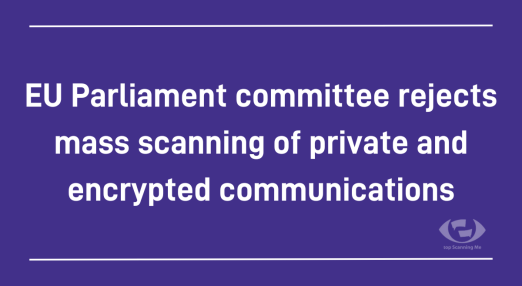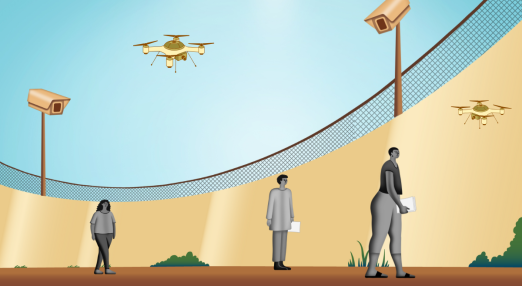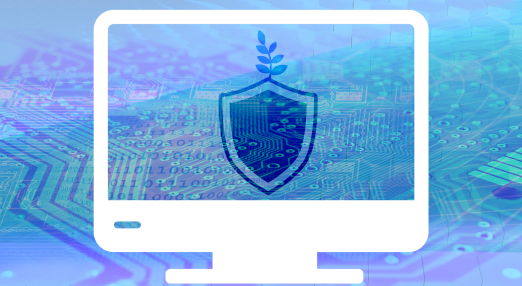Our work
EDRi is the biggest European network defending rights and freedoms online. We work to to challenge private and state actors who abuse their power to control or manipulate the public. We do so by advocating for robust and enforced laws, informing and mobilising people, promoting a healthy and accountable technology market, and building a movement of organisations and individuals committed to digital rights and freedoms in a connected world.
Filter resources
-

EU Parliament committee rejects mass scanning of private and encrypted communications
On 14th November, Members of the European Parliament’s ‘Civil Liberties’ committee voted against attempts from EU Home Affairs officials to roll out mass scanning of private and encrypted messages across Europe. It was a clear-cut vote, with a significant majority of MEPs supporting the proposed position.
Read more
-

EDRi Annual Report 2022: Challenges, success and changes in advancing digital rights in Europe
In our Annual Report, you can learn how EDRi built strong coalitions across civil society, mobilised hundreds of people, influenced key stakeholders at the European and national levels, leading to clear impact on European technology regulation in 2022. Read more.
Read more
-

A coalition of six organisations takes EU’s dangerous terrorist content regulation to court
On 8 November 2023, a coalition of six organisations filed a complaint before the French supreme administrative court, the Conseil d’État, against the French decree implementing the Regulation on addressing the dissemination of terrorist content online.
Read more
-

If the Commissioner isn’t responsible for DG HOME’s alleged unethical and unlawful actions, who is?
Serious concerns have been raised about the EU CSA Regulation by technologists, lawyers, NGOs, EU institutions, some child protection advocates and survivors and more. Recent allegations suggest that not only have these stakeholders been ignored - but that there may have been attempts by the EU Commission to manipulate the democratic process. The head of the Commission's Home Affairs unit has been grilled by MEPs about these allegations
Read more
-

Why your data might already be on a Europol list
Police forces around Europe seem hooked on the habit of collecting information on a massive scale and forwarding it to the EU's police agency, Europol. This undermines privacy, fair trial rights and the presumption of innocence.
Read more
-

Unchecked AI will lead us to a police state
Across Europe, police, migration and security authorities are seeking to develop and use AI in increasing contexts. From the planned use of AI-based video surveillance at the 2024 Paris Olympics, to the millions of EU funds invested in AI based surveillance at Europe’s borders, AI systems are more and more part of the state surveillance infrastructure.
Read more
-

Meta plans paid subscription for users who don’t want to be tracked
In a move to circumvent EU privacy law, Platform giant Meta reportedly plans to ask users to pay up to €228 a year to preserve their fundamental right to privacy on its platforms.
Read more
-

EU Cyber Resilience Act would harm open source software and competitiveness
If the EU Cyber Resilience Act is adopted in its present form, it would seriously harm the open source ecosystem and the competitiveness of the European economy, argues EDRi member Vrijschrift Foundation in a letter to the Dutch Parliament.
Read more
-

EDRi-gram, 25 October 2023
We’re in high spirits after mobilising 23 activists from over 13 European countries to come to Brussels in support early October. Representing over 200,000 supporters of EDRi’s Stop Scanning Me campaign, these activists urged Members of European Parliament (MEPs) to ensure everyone’s digital security amid mass surveillance measures in the CSA Regulation. Meta is up to no good again after the European Court of Justice declared their handling of user data illegal earlier this year. In a move to circumvent EU privacy law, the tech corporation reportedly plans to ask users to pay up to €228 a year to preserve their fundamental right to privacy on its platforms.
Read more
-

Activists come to Brussels to tell MEPs to ensure everyone’s digital security amid mass surveillance measures in CSA Regulation
Between 9 and 11 October, 23 Stop Scanning Me activists from 13 European countries travelled to Brussels. They were students, parents, lawyers, young activists, human rights defenders and technologists. They came on behalf of the 200,000 people who signed the movement petition to tell their EU representatives in the European Parliament that the CSA Regulation proposal must be rejected to prevent mass surveillance.
Read more
-

Political negotiations continue: EU lawmakers fail to agree on strong rules for regulating political advertising
On 10 October, the European Parliament, the Commission and the EU Council had their fifth meeting (in the so-called trilogues) to find an agreement on the transparency and targeting of political advertising. The three institutions could not come to a consensus. Here is why.
Read more
-

EDRi-gram, 11 October 2023
The autumn leaves have started to fall but not our spirits. We organised 180 civil society groups and eminent experts to call on governments to stop the use of facial recognition surveillance by police, authorities and private companies. We also mobilised 80 media, journalists, and human and digital rights organisations to urge MEPs to ban the use of spyware against journalists & so much more!
Read more
